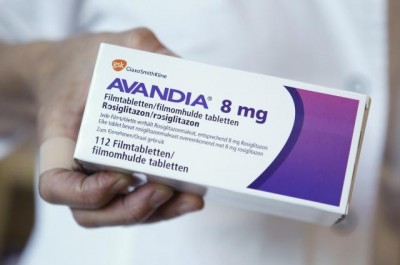 Patients might want to be suspicious of doctors and pharmacists that recommend prescriptions for new wonder drugs.
Patients might want to be suspicious of doctors and pharmacists that recommend prescriptions for new wonder drugs.
Recent news stories show that giant pharmaceutical manufacturers have used bribery and other corrupt methods to get medical professionals to push their products. Law enforcement officials have caught executives from some of the world’s largest pharmaceutical companies – including Johnson & Johnson — engaging in blatantly criminal behavior.
A good description of how the pharmaceutical industry routinely does business was made last month by U.S. Attorney General Eric Holder.
“These companies lined their pockets at the expense of the American taxpayers, patients, and the private insurance industry,” Holder said. He noted that America’s largest pharmaceutical maker, Johnson & Johnson, “recklessly put at risk the health of some of the most vulnerable members of our society – including young children, the elderly and the disabled.”
Giant Pharmaceutical Company Guilty of Health Fraud
Holder was speaking at a press conference announcing a $2.2 billion lawsuit settlement between Johnson & Johnson the U.S. Justice Department and several state governments. Some of the activities that Johnson & Johnson and its subsidiary Janssen were accused of in the suit included:
- Paid kickbacks to doctors that prescribed Risperdal, an antipsychotic drug.
- Encouraged doctors to prescribe Risperdal for patients it wasn’t approved for.
- Encouraged doctors to prescribe Risperdal to patients who couldn’t object to its use — elderly persons in nursing homes with dementia, the mentally disabled and children.
- Paid kickbacks to a company called Omnicare Inc., the nation’s largest pharmacy for nursing homes.
- Paid kickbacks to doctors who prescribed other Johnson & Johnson drugs.
A former J&J sales representative, Victoria Starr, alleges that she was ordered to encourage doctors to prescribe Risperdal to children in violation of federal law. Risperdal has been shown to have dangerous side effects, including weight gain and diabetes.
Learn How To Make Your Own Emergency Remedies For Use In Any Survival Situation …
The settlement with Johnson & Johnson was only the third largest settlement between the federal government and a major pharmaceutical company over illegal marketing.
Last year, British-based GlaxoSmithKline PLC paid a $3 billion fine to settle fraud charges. The charges included allegations that the company encouraged doctors to prescribe drugs for unapproved uses and hid data that indicated the diabetes drug Avandia was unsafe. Pfizer paid a $2.3 billion fine for illegal marketing practices in 2009.
And Maybe Even Worse?
A case in China shows that the pharmaceutical industry might be even more corrupt than we suspected. The charges against Glaxo in China include paying $500 million in bribes to doctors who prescribed Glaxo drugs.
At least four Glaxo executives including, Liang Hong, have been arrested. Two top executives fled the country to escape prosecution. The company is also facing around $500 million in fines in China. The Chinese media has reported similar allegations against other major pharmaceutical companies operating in their nation.
Pharmaceutical Company Admits Payments to Doctors
GlaxoSmithKline’s Chief Executive Officer Sir Andrew Witty announced some changes to company policy. Specifically, the company will stop paying medical professionals for speaking engagements and stop paying doctors to attend medical conferences starting in 2016. Glaxo will also stop basing its salespeople’s pay on the number of drugs they sell.
Media observers think that Witty made the decision in reaction to the scandal in China. It isn’t clear if other pharmaceutical houses will follow suit.
Average people need to question the motivation for the prescription of drugs.
Sign up for Off The Grid News’ weekly email and stay informed about the issues important to you
 Off The Grid News Better Ideas For Off The Grid Living
Off The Grid News Better Ideas For Off The Grid Living



